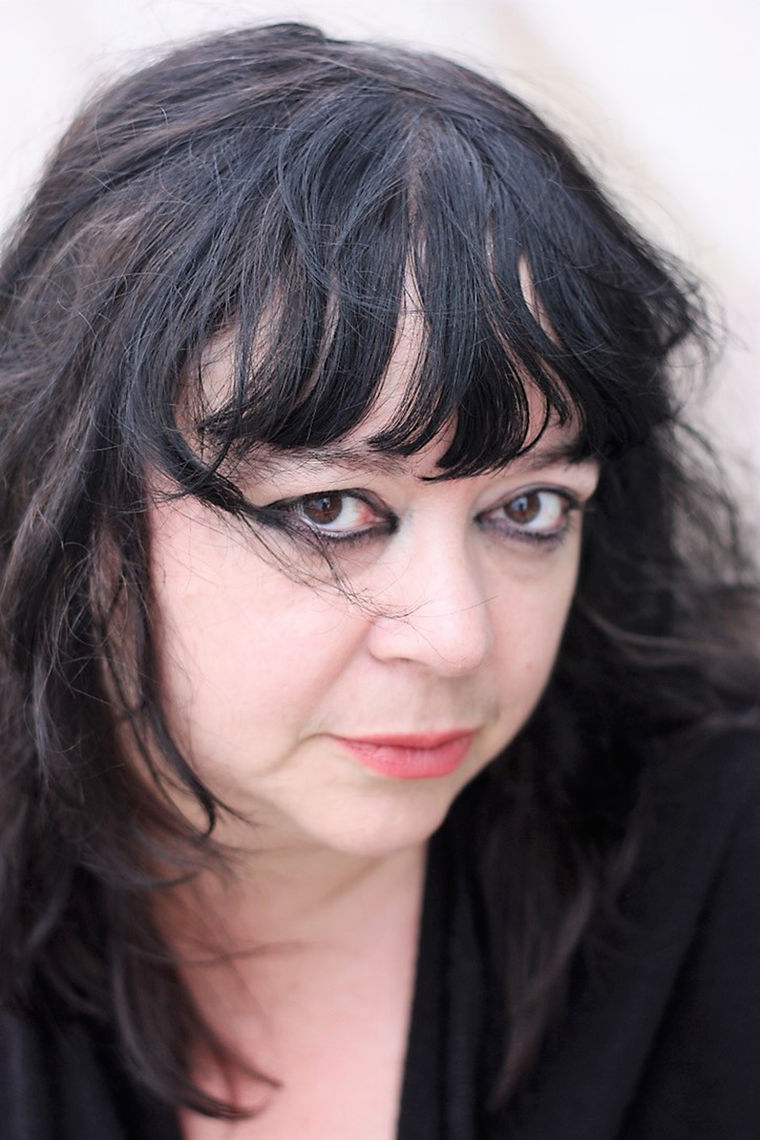and padded barefoot across the cold marble floor of the museum. Outside, down the slate stairway, the ferry to the mainland awaited me.
Awaited all escapees. “Fee!” the Ferrymaster bellowed, but all I had to offer him was my last apple, a Golden Delicious. He grabbed it
and took a bite with his horse teeth. He was so transparent I could
see the bite as it traveled down his esophagus and came to rest
in the cemetery of his stomach. “Shoes!” he yelled. It turns out
he had a cardboard box full of shoes just for this occasion.
Most escapees were shoeless. I chose a red pair, but they pinched,
so ended up with some worn sandals, the kind that White Jesus
wears in depictions of him walking his lonely road. Once they were
on my feet, the ferry began to glide toward the mainland like a drop
of cream down a small mirror. There was no turning back;
the museum was already lost in memory, which looks like fog.
The Ferrymaster used a long stick, pushed it into the silt at the bottom of the harbor to guide us along. “That ain’t silt,” he said, mindreading.
“That’s escapees who jumped ship.” And I looked into the glassy water and saw their bodies down there, layers of girls still radiant
with the green-gold light of Paradise, wearing borrowed shoes.
When we reached the mainland, nothing looked familiar, though
it’s said we were all born here. The Ferrymaster lowered the rusty gangplank with a bang. I knew it was rust; the word was nestled
in a cubbyhole in my brain, but I’d never seen it before. “Git!”
he shouted. “And leave the shoes!” He talked always with exclamation
points, which I’d never seen before. They hung over his head
like the droppings of scavenger birds. “What’s this place called?” I cried
as he pulled away from the pier, but he only grinned like a skull
grins, without humor. My feet were boiling on the asphalt. I needed shoes,
and coins to buy them with. Shoes and a pile of gold. There were people, hundreds of them, crisscrossing each other’s paths like ants or bees,
carrying tall cups and printed papers and paying me no mind.
Only one, with hair the color of a blood orange, stopped
for a moment, and stared. “Hey, beautiful,” he said, which told me
I was real. “Where do I go?” I asked. There were buildings
made of angles that bent sunlight, and roads curving back
on themselves like snakes and crossing each other like crucifixes.
“Home to mommy!” the man said, and he laughed and showed
the gold in his teeth. He was right; I had a mommy. A mother
and a sister. Mother with purple rivers of veins in her hands.
Sister with pale lavender ones at her temples. My mother’s hair,
white like a cloud of apple blossoms. I could picture her arranging peaches in a bowl, and I remembered our house, small and gray,
and beside it a cemetery on a hillside, and I remembered Death,
and how the body is laid inside a box with a pillow for its head
and its hands crossed over its chest, and then the lid is closed
forever and the box is lowered into a vault in the ground,
and the vault receives its lid, and earth is loaded on top of it
and tamped down to keep the body from escaping. I remembered
it all: my yellow room, my little crib with decals of butterflies
and a black-and-white dog and a gold cat on the headboard,
how I’d compose stories about them in my head before I could
speak, and the yellow bird we kept in a cage, and the bog
behind the house, the brown velvet cattails and how they exploded into sheep’s wool in late summer, and the milkweeds, their mysterious
seam like the smile of Mona Lisa with milk on her lips, how they opened and their seeds were carried on the wind like ships
made of feathers, and Father, wearing a back brace, who would
not be getting well and who could no longer work or play or lift me
into his arms, and I went running toward it, all of it. I wanted my mother, and this is why I left Paradise.
